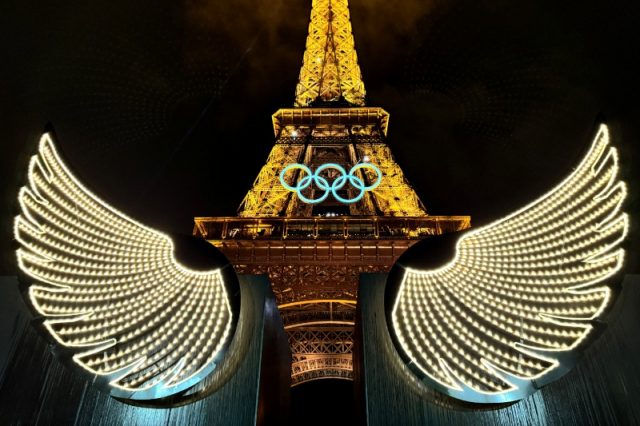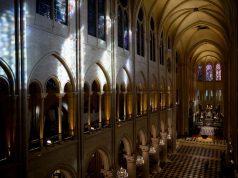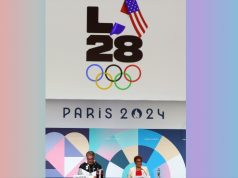
PARIS — A parody of Leonardo Da Vinci’s famous fresco ‘The Last Supper’ featuring drag queens in the Olympic opening ceremony in Paris has sparked fury among the Catholic church and far-right politicians, while supporters praised its message of tolerance.
The unprecedented ceremony on the Seine River, which drew millions of viewers around the world, included a tableau celebrating the French capital’s vibrant nightlife and reputation as a place of tolerance, pleasure and subversiveness.
It recreated the famous biblical scene of Jesus Christ and his twelve apostles sharing a last meal before crucifixion, but with a group of drag queens, a transgender model and a naked singer made up as the Greek god of wine Dionysus.
The Catholic church in France criticised the segment.
“This ceremony has unfortunately included scenes of derision and mockery of Christianity, which we very deeply deplore,” the Conference of French bishops said in a statement.
Far-right politicians in France and elsewhere took to social media to express their disgust.
“To all the Christians of the world who are watching the #Paris2024 ceremony and felt insulted by this drag queen parody of the Last Supper, know that it is not France that is speaking but a left-wing minority ready for any provocation,” far-right politician Marion Marechal said in a post on X.
Her Italian counterpart, Matteo Salvini, added: “Opening the Olympics by insulting billions of Christians in the world was really a very bad start, dear French. Sleazy.”
American billionaire Elon Musk, who cemented his shift towards right-wing politics by endorsing Donald Trump earlier this month, said it was “extremely disrespectful to Christians”.
France, while proud of its rich Catholic heritage, also has a long tradition of secularism and anti-clericalism. Blasphemy is not only legal, but also considered by many as an essential pillar of freedom of speech in a democratic society.
“In France, people are free to love how they please, are free to love whoever they want, are free to believe or not believe,” Thomas Jolly, the ceremony’s artistic director, told reporters on Saturday when asked about critics.
Some commentators said the controversy was just another example of 21st century culture wars turbocharged by a 24-hour news cycle and social media.
“Everyone has to take offence it seems,” David Aaronovitch, a BBC Radio 4 presenter said on X. “Leonardo is one of the most famous images in the Western world and has been pastiched, parodied and altered tens of thousands of times.”
One of the pastiche’s protagonists was unapologetic, however.
“It wouldn’t be fun if there were no controversy. Wouldn’t it be boring if everyone agreed on this planet?” Philippe Katerine, the blue naked man in the scene, told BFM TV a day after the show.
—Reporting by Michel Rose and Julien Pretot in Paris and Giselda Vagnoni in Rome, editing by Pritha Sarkar








